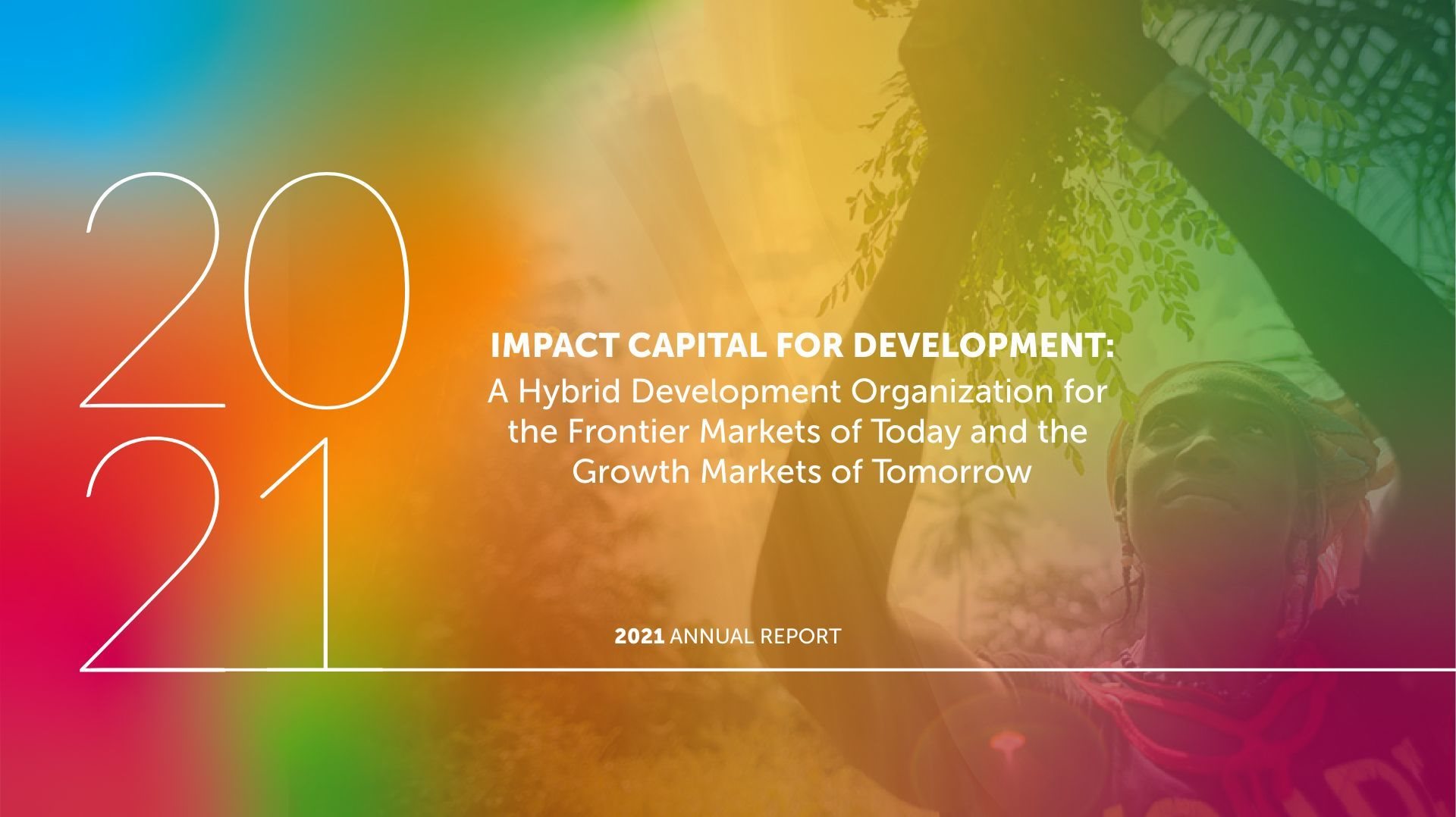Foreword
Does the achievement of the Sustainable Development Goals agenda, or the 2030 Agenda, represent an economic development challenge or a global finance challenge?
The question itself is a perfect example of an “either-or” fallacy. Achieving the SDGs in general—and achieving this agenda in the world’s 46 least developed countries (LDCs), which UNCDF sees as the frontier markets of today and the growth markets of tomorrow—represents both a challenge of economic development and global finance. Ultimately, the challenge of ensuring that we truly leave no one behind is a quintessentially a hybrid challenge. Addressing this hybrid challenge speaks precisely to the value proposition of the UN Capital Development Fund (UNCDF).
The North Star of UNCDF is to operate as a hybrid organization that is both a development organization and a development finance institution. At a practical level, this means that UNCDF will complement traditional grant-making and technical assistance with an increased and mainstreamed use of financing capabilities and instruments, including loans, guarantees and blended finance funds across areas of technical expertise.
The results reflected in UNCDF’s 2021 Annual Report reflects this hybrid nature that drives the organization’s mission: to serve as the United Nations flagship catalytic financing entity for the LDCs to strengthen financing mechanisms and systems for structural transformation.
2021 was a year where the markets UNCDF served were suffering from many of the worst impacts of climate change, biodiversity loss, lack of digital infrastructure, gender inequality, under-capitalized local governments, political instability and the devastating impacts of COVID-19. Yet despite these challenges, UNCDF in partnership with public and private sector actors as well as its UN sister organizations, delivered the below topline results:
Partnered with 390 financial and digital service providers, small and medium enterprises and public organizations, providing inclusive financial and other digital solutions to over 3 million people in 35 countries;
Supported scalable initiatives in 588 local governments in 42 countries to enhance their subnational financial systems while completing 390 localized strategic investments, supporting climate adaptation and demonstrating the effectiveness of decentralized financing systems;
Issued 9 new loans in five countries in 2021, thus expanding its investment portfolio to 30 loans and guarantees; while also disbursing a total of US$37 million through catalytic grants in support of local investments as well as inclusive finance and digital service provision, which together unlocked US$89 million in direct and catalytic financing;
Made progress with developing and supporting the capitalization of two global third-party managed blended finance funds for SME and infrastructure development, while the Global Fund for Coral Reefs Secretariat, which will support biodiversity preservation, has moved to UNCDF.
Separate from the results we achieved, 2021 was a pivotal year for the organization as UNCDF laid the foundation for its new Strategic Framework 2022-2025. It is a framework that builds on the foundation and experiences of the organization to help UNCDF blaze a path forward as a fully realized hybrid economic development agency/development finance institution, namely on the basis of several endeavors:
Leveraging our unique financing capability and investment track record to support the United Nations Development System;
Increasingly allocating resources and pursuing synergies with private and public actors to address the niche area of “Missing Middle” finance, where ticket sizes are too large for microfinance and too small for commercial lenders;
Seeking to mainstream digital innovations in its investment and programmatic agenda in support of LDCs;
Accelerating our work in the area of subnational finance to support a global financial ecosystem that provides access to finance for cities and local governments;
And scaling up its work to provide innovative finance instruments and development support that uses official development assistance to mobilize additional public and private development finance for the LDCs.
The UNCDF Annual Report reflects in equal parts how we achieved our mission the previous year as well as how we will achieve our vision in the years to come; a vision where LDCs are able to access and leverage the development impact of capital to enable sustainable and inclusive economic growth and achieve the Sustainable Development Goals. In both cases, this report intends to present a clear narrative for how UNCDF will become the hybrid organization necessary to achieve the SDG agenda, specifically for those communities where the development needs are greatest. And for UNCDF, success in this regard means working to ensure that capital works for humanity, and not the other way around.

Achieving the SDGs in general—and achieving this agenda in the world’s 46 least developed countries (LDCs), which UNCDF sees as the frontier markets of today and the growth markets of tomorrow—represents both a challenge of economic development and global finance.
Preeti Sinha
Executive Secretary
UN Capital Development Fund

UNCDF's new Strategic Framework 2022-2025 was established in 2021, making it a watershed year for the organisation. It's a plan of action that utilises the organization's history and current practises to pave the way for UNCDF to become an effective hybrid agency for economic development and a development finance institution.
Preeti Sinha
Executive Secretary
UN Capital Development Fund

UNCDF by the Numbers
+3M
people benefitted from
inclusive financial and digital solutions in 35 countries
+390
financial products and services were piloted with support
from UNCDF
390
localized strategic
investments in local
development finance
588
local governments
supported in 42 countries
30
loans and guarantees
in 9 countries
+$89M
in direct financing unlocked
by $37M in strategic grants
14
countries' financial inclusion
strategies supported and assisted
in 23 new strategies
$17.6M
in climate-resilient infrastructure
through technical assistance,
policy support, and capacity
development
The Annual Report shows how we achieved our mission and how we will achieve our vision in the future; a vision where LDCs can access and use the development effect of capital to enable sustainable and equitable economic growth and meet the SDGs.
Preeti Sinha
Executive Secretary
UN Capital Development Fund
Stay Connected
GET THE LATEST UPDATES TO YOUR INBOX

